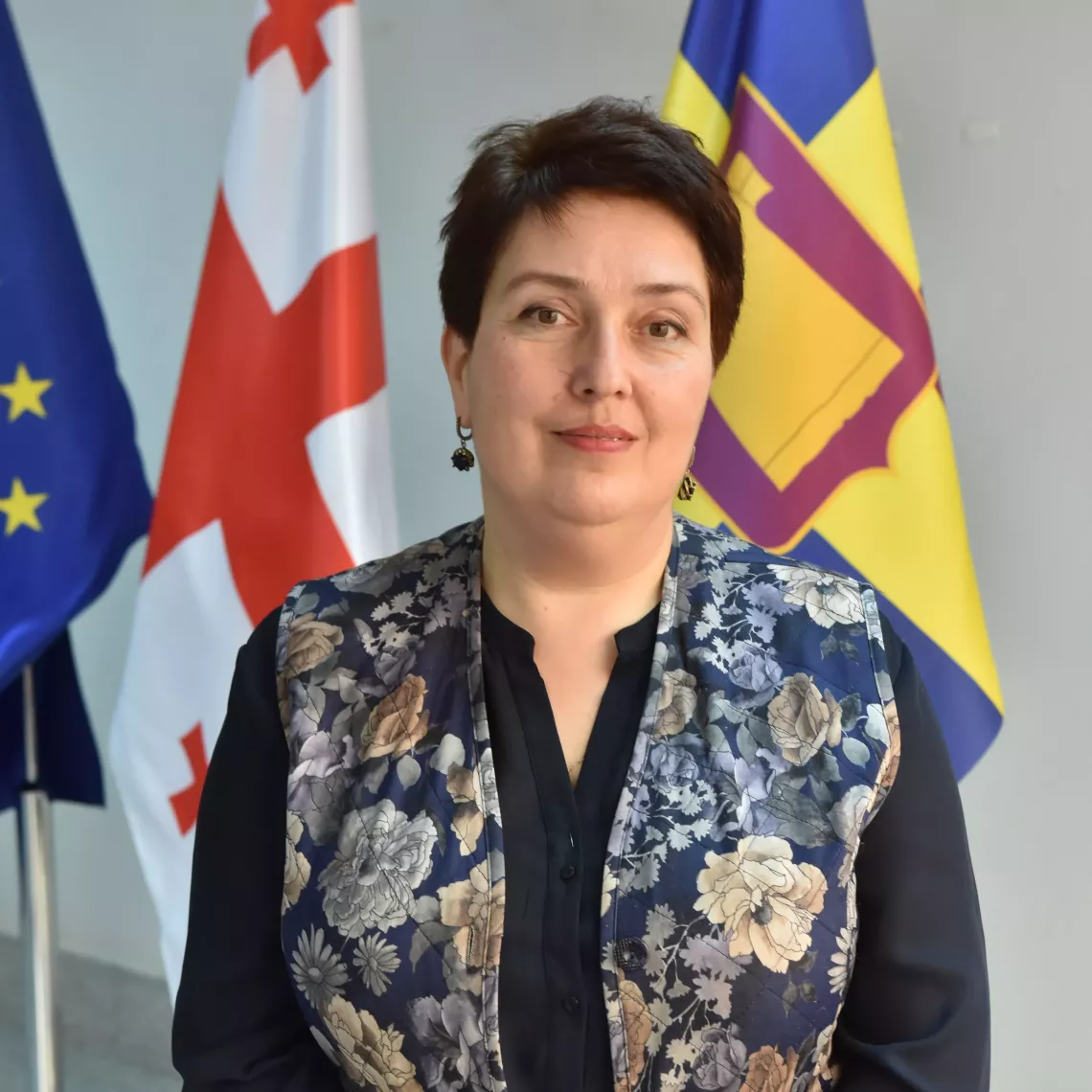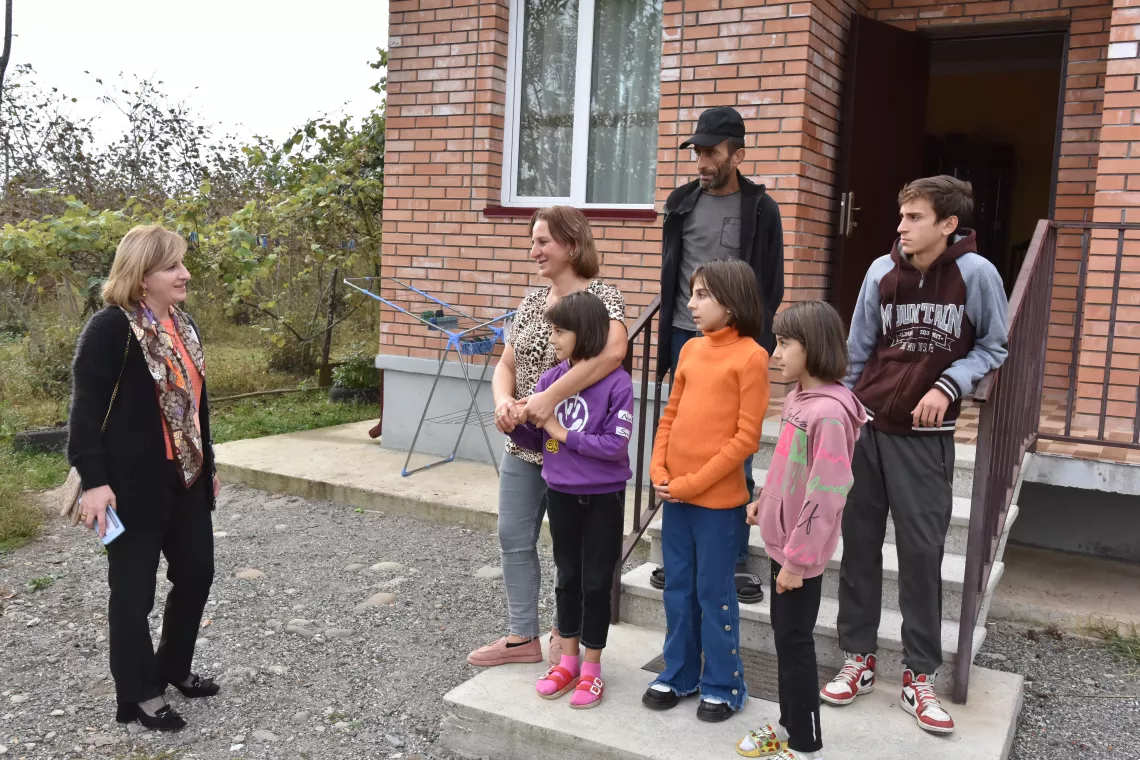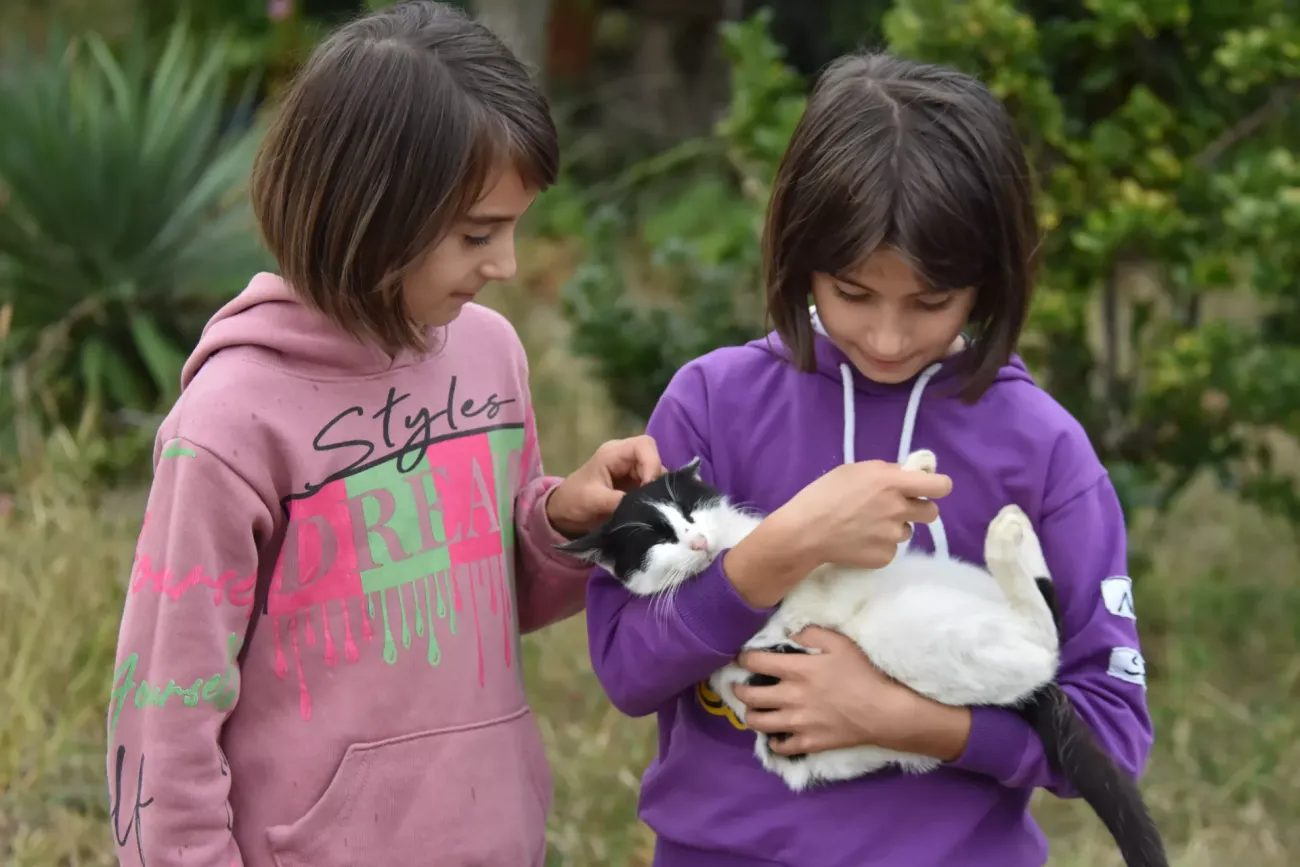8-year-old twins, Ani and Mari, play with their cat “Piso” in the yard while chatting with the local municipality social worker, Ia Ekhvaia – a frequent visitor to their home. The girls show Ia their recent drawings and tell her their plans for the future. Mari wants to become a veterinarian and Ani, a fashion designer. Ia smiles and encourages the girls while checking in with their mother if there is anything the family needs at this point. This family of seven, refugees from Abkhazia now living in the village Rukhi, has been in the focus of the municipality due to the grave living conditions and severe financial problems that they faced.
“We were constantly frustrated, the state support we received was only enough for some food and basic goods, but the children need so much more as they grow up,” says Gulnazi, the 43-year-old mother of Gocha, 13, Salome, 11, Nini, 9, and the twins.
Practical skill-based intervention programmes from the municipality of Zugdidi helped the parents find stable work, complementing and in the long-term, replacing the support provided by the government. The father, who had been unemployed for over a decade due to health issues, secured a position within the municipality, while the mother found employment in the local kindergarten. The municipality supported the children in enrolling in after-school classes where they learn English, since all of them were interested and gifted in languages.
Nino Skhulukhia, head of Zugdidi municipality's Social Department, emphasizes the significance of a pragmatic, holistic approach in addressing vulnerability. "You cannot be too emotional or else you will lose all professional objectiveness; you cannot be at the center of the problem," she underscores.

UNICEF/Geo-2023/Gabechava
Nino speaks about the strategic shift in programming which she experienced as a result of the new partnership initiative with UNICEF, the National Association of Local Authorities of Georgia (NALA), and 18 municipalities in Georgia supported by the European Union. The aim of the initiative is to enhance social programming to reach the most vulnerable children and families, and to guide them towards self-reliance.
The new methodology was introduced in the municipalities to focus on needs assessment for entire families, rather than solely focusing on children or individual parents. The new programming led to improved outreach based on field research, surveys, focus groups and interviews. The research found unmet needs of children and families and weaknesses in existing outreach-based programmes, resulting in many families being unaware of available assistance, even for basic medical needs. Utilizing this new methodology of needs assessment, social workers identified families' most pressing necessities and are now assisting them in accessing the required support. The improved programming guarantees evidence based social planning and better focus on children and their families.
“Before, we did not have such methodology. We did not know how to do proper needs analysis,” says Nino, “and this prevented us from on one hand, to have an objective view of a case, and on the other hand, the needs assessment showed us that child deprivation goes beyond financial needs, thus it cannot be met with only financial support”.

UNICEF/Geo-2023/Gabechava
Gulnazi, 43-year mother of 5 children with her family
The programming goes beyond one-time financial assistance by developing comprehensive support programmes and connecting families with available services based on their needs, addressing employment opportunities, incorporating education, language, and mental health support. Direct outcomes of collaborative efforts included: transportation for school children, programmes for children with autism spectrum disorders, and English language lessons. This multifaceted approach aims to uplift families, fostering self-reliance and breaking the cycle of poverty and vulnerability.

UNICEF/Geo-2023/Gabechava
Social Worker Ia Ekhvaia talking with the family
Recently, the family of Ani and Mari stepped into their new home, built by the Danish Refugee Council. The house marked a turning point for their family, illustrating the positive impact of the collaborative efforts of the municipality, the national government, and the international society.
“Being refugees of war and socially vulnerable, we have always been dependent on state support,” says Gulnazi, “but now, with this other kind of attention – to the needs of my children, to my needs, I feel seen. I feel more optimistic for the future of my children. I am hopeful that with the knowledge and skills they are gaining now, they will grow up to be independent and successful people”.
The article was produced with the assistance of the European Union. Its contents are the sole responsibility of the authors and do not necessarily reflect the views of the European Union.






